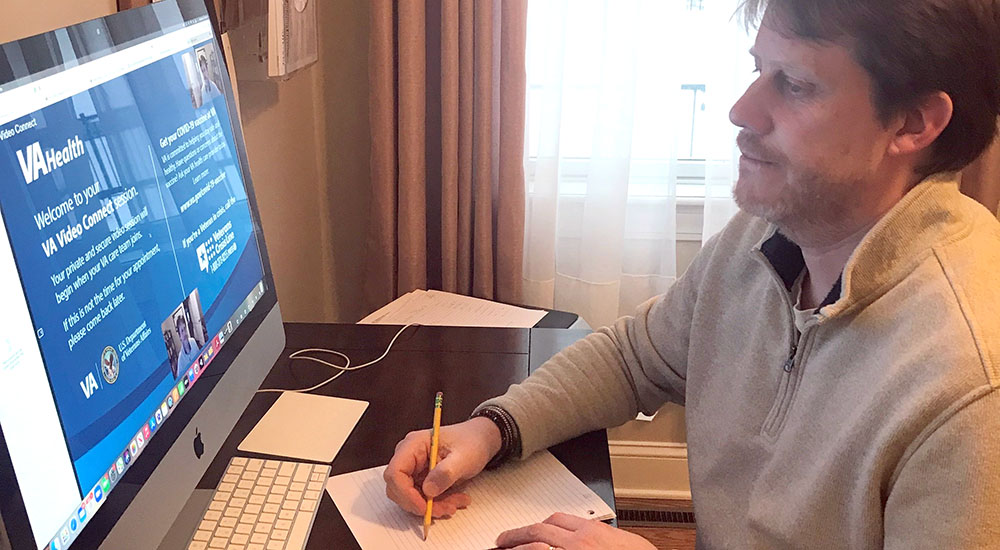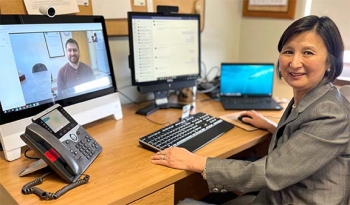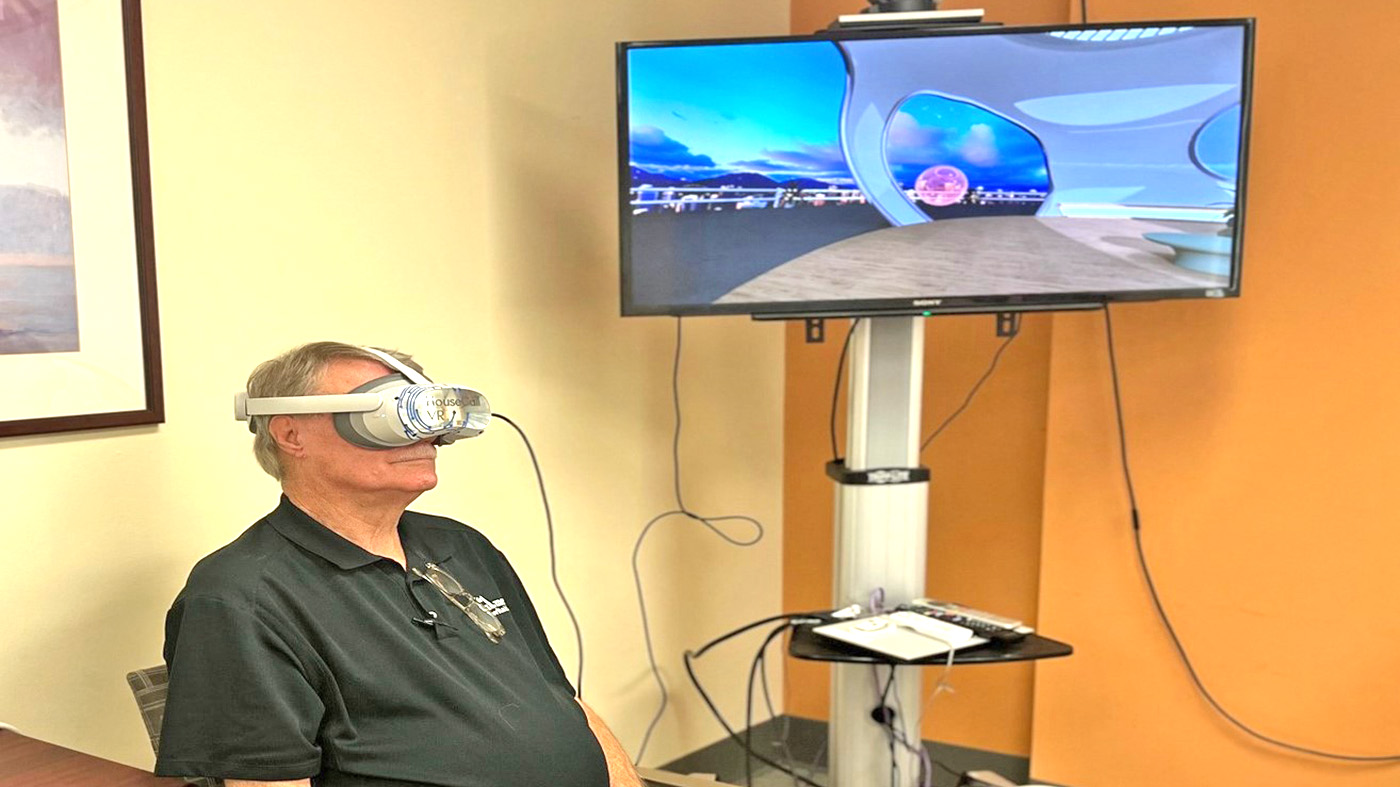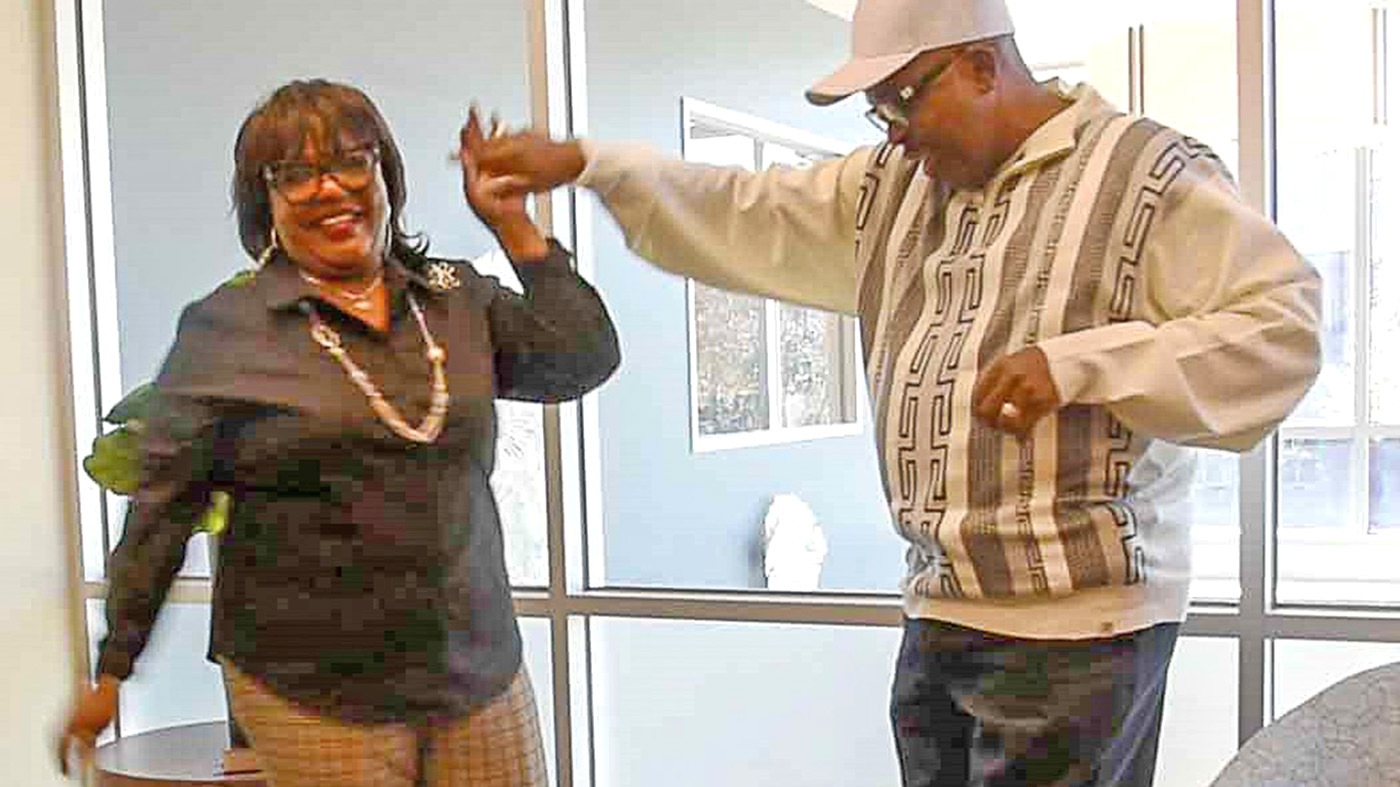Earlier this month, Navy Veteran Conan O’Rourke took a break between personal meetings and a VA Speech-Language Pathology telehealth appointment to talk about living with traumatic brain injury (TBI).
Though he looks and speaks normally by most people’s standards, he is one of many Veterans whose life has been negatively impacted by TBI.
“I am what they consider a high functioning TBI patient,” said Conan, “But what people don’t see are the times I have to withdraw.”
Mental fatigue makes him lose functionality for whole days at a time. According to VA experts, this is a common symptom for people living with the lingering effects of TBIs. Conan has suffered two TBIs from motor vehicle accidents, one in 1990 while he was in the Navy and the second in 2012. The second TBI left him with life altering injuries, such as skull fractures and bleeding inside his brain.
“It took nearly two years to come to terms with my brain injury. There was a lot of denial before I could come to some degree of acceptance,” he said.
Acceptance and moving forward with VA’s Polytrauma System of Care
After receiving initial treatment and rehabilitation outside VA, Conan enrolled in VA care in 2015.
“The first couple of years of VA treatment were ok but didn’t address some of the needs related to my TBI,” he continued. “Things changed in 2018 when I attended the Brain Injury Awareness Day event on Capitol Hill and learned about the Polytrauma System of Care.”
After connecting with the Polytrauma System of Care at his local VA facility, Conan was referred to Dr. Mi-Hyon Cho, a specialist in brain injury medicine with the Hudson Valley VA.
“Mr. O’Rourke sustained significant injuries in 2012 and our system of care is designed to manage complex injuries,” said Dr. Cho. “We focus on helping cognition and behavior, physical rehabilitation and mental health. There can be many layers to treatment and each Veteran’s care plan is designed specific to their needs.”
Telerehabilitation for TBI
While virtual care has been part of VA for years, adapting to the COVID-19 pandemic has enabled Veterans to access more online options. For O’Rourke and other Veterans receiving TBI/Polytrauma care, this means having access to specialized polytrauma and TBI clinical services no matter where they live – it means having treatment options that may not be available locally.
One example is the Tele TBI Program at VA Hudson Valley. Comprised of a TBI specialist, speech therapist, mental health provider, and TBI telehealth coordinator, the program specializes in managing TBI and co-occurring conditions.
Our Tele TBI Program is seeing Veterans from rural areas around the country including Veterans enrolled at VA Medical Centers in Erie, Augusta, Albany, Montana; Memphis, Tennessee; and Northern Indiana,” Dr. Cho explained.
For O’Rourke, this means he receives treatment from Dr. Cho, his speech therapist, mental health provider and TBI telehealth coordinator from the comfort of his own home.
Living with the long-term effects of TBI
Even with the most advanced care possible, Conan is realistic about his condition.
“I’m not going to go back to being the same person I was. My brain will never fully recover. What I have learned are coping strategies. I am now more aware of what I need and how I can become stronger,” said Conan. “I am much happier now with Dr. Cho. I feel like I am getting someone who is like a Primary Care doctor for my brain injury – I have someone who is looking at all aspects of my care.”
To learn more about the VA Polytrauma System of Care, visit: www.polytrauma.va.gov.
Topics in this story
More Stories
Gulf Coast VA hosted an innovator who is developing a virtual reality software designed to provide interactive diabetic patient education.
Army Veteran Larry Scales had his first heart attack in 1999. After his third heart attack he sought help at the Michael E. DeBakey VA.
Learn how VA can help you keep independent while still receiving support when you need it.







Help my car accident accured 1983, again I sustained a whiplash, knocked out from top of my head hitting , the back of my 1983 Ford ranger
I wanted to know if TBI gets worse by age? I had a skull fracture were now I get headaches more fgreqent..At times I want to be very alone regardless of what.I am losing weighty I am 68 and am a vietnam veteran.I have had tumps agaisnt head also after TBI my speech is talking like inside mouth.Often people sauy that and then I feel out of the picture..I used to smoke stopped as driding .Problem is I live in Holland due to mistakes 40 or so years ago makiong me more depressed A old ticket was not taken out of PC so as you know now I can see grandchildren via telephone also recomended not tro see to much but hey my grandchildren..anyway could you help me as speech how to stay fitter and not get depresser?
anthony bauwens